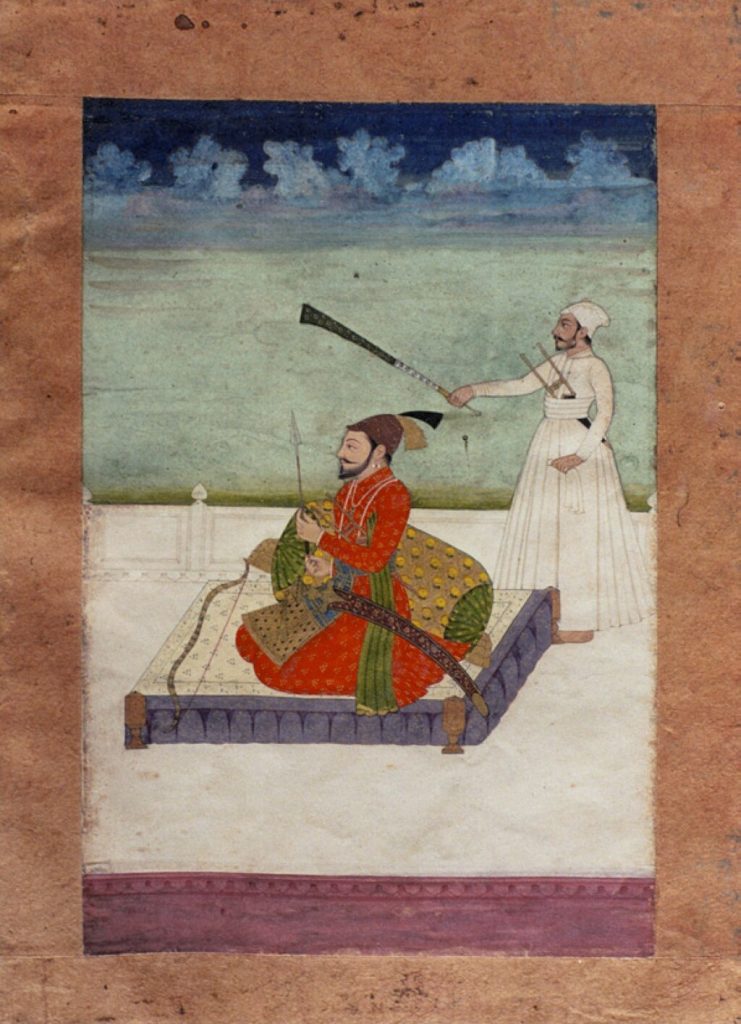Discover Banda Singh Bahadur, the fearless Sikh warrior who seized land for the Khalsa in the 18th century, paving the way for the Punjab conquest.
Explore the historical narrative of Wazir Khan, the Mughal faujdar of Sirhind, and his encounters with Guru Gobind Singh in the tumultuous early 1700s.
BUDDHA SINGH, BHAI (d. 1774), a Brar Jatt who had seen the stirring days of Guru Gobind Singh, took part in January 1764 in the joint attack of Sikh sardars upon Sirhind. The town was seized from the Afghan governor, Zain Khan, who was killed in the action. Since none of the participating sardars was willing to accept possession of the town of Sirhind accurst from its association with the execution of Guru Gobind Singh *s two younger sons, it was assigned to Buddha Singh by a unanimous vote.
Discover Zain Khan's tumultuous reign as Sirhind's governor and his downfall in 1764, marked by relentless Sikh resistance in the Great Carnage.
FATEHGARH SAHIB, GURDWARA, 5 km north of Sirhind (30°37`N, 76°23`E), marks the site of the execution of the two younger sons of Guru Gobind Singh at the behest of Wazir Khan of Kunjpura, the faujdar of Sirhind. As Guru Gobind Singh evacuated Anandpur on the night of 5-6 December 1705, he was closely pursued by the host. In front ran the Sarsa swollen with rain water. Under cover of a quick rearguard action fought on the banks of the stream, he succeeded in crossing it, but the members of his family got scattered in the tumult.
FATEH SINGH (d. 1716), an army commander under Banda Singh Bahadur, who was appointed administrator of Samana after the town was occupied by the Sikhs in 1709. Fateh Singh participated in several of Banda Singh`s battles against the Mughal rulers. In the battle of Sirhind fought at the nearby village of Chappar Chiri, Fateh Singh killed Nawab Wazir Khan, the faujdar of Sirhind. He was taken prisoner at Lohgarh in December 1710 and, after several years in jail, was executed in Delhi in June 1716 along with Banda Singh and his other companions.
FATUHAT NAMAH-I-SAMADI, an unpublished Persian manuscript preserved in the British Library, London, under No. Or. 1870, is an account of the victories of `Abd us-Samad Khan. Nawab Saifud Daulah `Abd usSamad Khan Bahadur Diler Jang was appointed governor of the Punjab by the Mughal Emperor Farrukh-SIyar on 22 February 1713, with the specific object of suppressing the Sikhs who had risen under Banda Singh commissioned by Guru Gobind Singh himself, shortly before his death, to chastise the tyrannical rulers of Punjab and Sirhind.
Explore Jangnama, the key Persian account of Ahmad Shah Durrani's 1764-65 crusade against the Sikhs, a pivotal historical source.
Learn about Rai Kalha of Raikot and his deep connection with Guru Gobind Singh amid historic and religious significant episodes.
- 1
- 2





